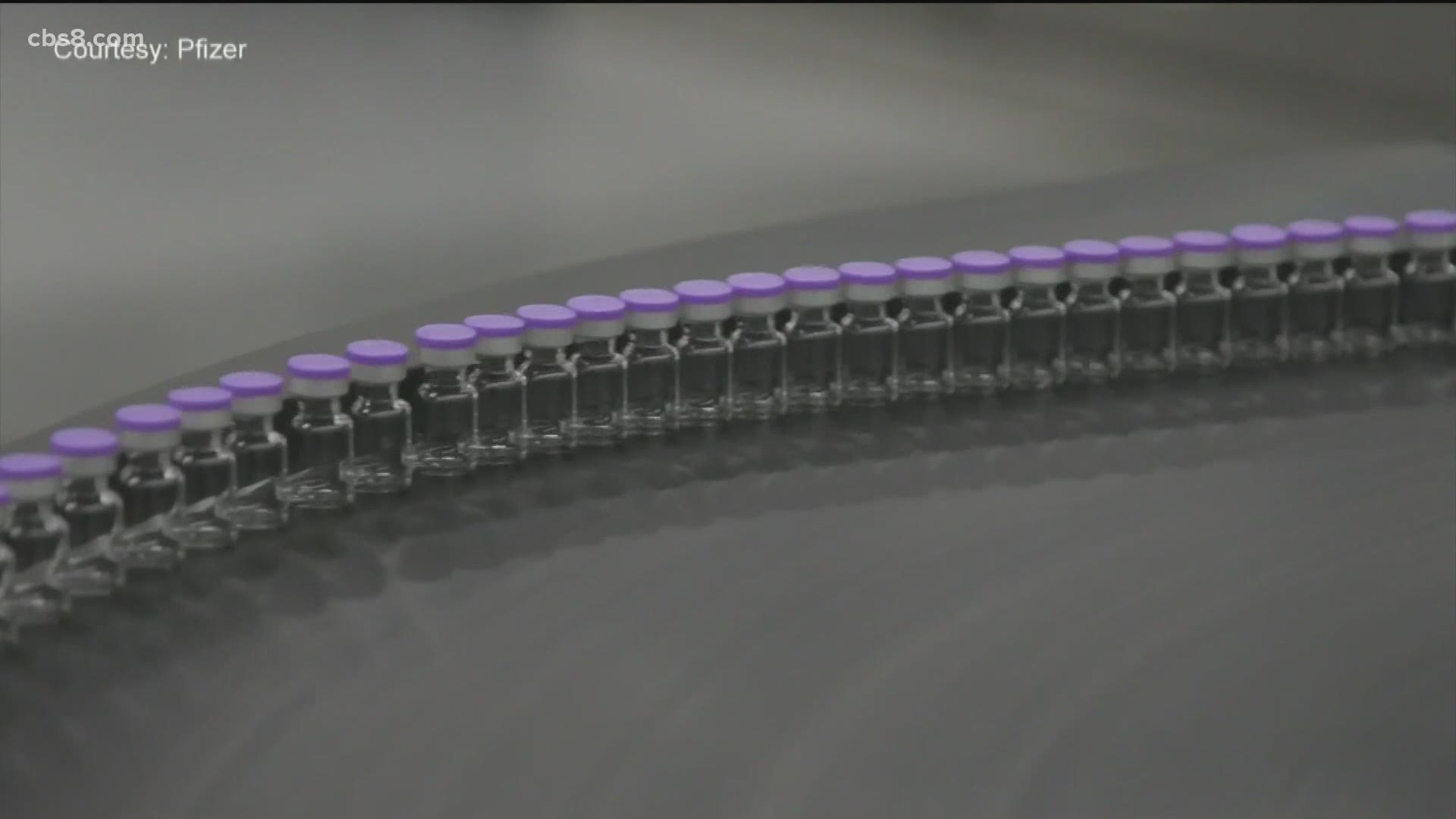SAN DIEGO — As the number of COVID-19 cases continues to rise, the race for an approved vaccine is heating up.
On Monday, Governor Gavin Newsom offered some insight into how the state plans to prioritize vaccinations. From distributing more than 19 million flu vaccinations ever year, as well as vaccines for Hepatitis-A and N1H1, Newsom said that California has the infrastructure and experience needed to roll out a vaccine for coronavirus.
"I want folks to know that we are not starting from scratch," he said.
California is actively planning the logistics for delivering and distributing a vaccine, once the FDA formally approves one or more of the proposed vaccines currently showing promise. That approval is expected some time in early December.
Newsom conceded that the first doses the state will receive will be extremely limited in quantity, and will be reserved in phase one of distribution for the state's 2.4 million health care workers.
"We're also prioritizing individuals in congregate care settings, those who are medically vulnerable, in skilled nursing facilities, resident care facilities, as well as first responders and other critical infrastructure," he added.
As for the general population, vaccine rollout is now anticipated from March through July of next year.
"Mass vaccination is unlikely to occur any time soon," Newsom said.
The field of vaccine contenders is now a bit larger, with promising results demonstrated in the United Kingdom by pharmaceutical company Astra-Zeneca.
Astra-Zeneca officials said that late-stage trials showed its coronavirus vaccine was up to 90% effective, giving public health officials hope they may soon have access to a vaccine that is cheaper and easier to distribute than some of its rivals. The results announced Monday are based on interim analysis of trials in the U.K. and Brazil of the vaccine.
Drug makers Pfizer and Moderna have reported preliminary results showing that their vaccines were almost 95% effective.
Another key feature of the Astra-Zeneca vaccine is that it may also help to prevent transmission of COVID-19.
"We may have the first vaccine that's been shown to protect against severe disease, clinical disease and against asymptomatic disease," said Professor Adrian Hill, head of the Jenner Institute at Oxford University, where the trials are being conducted.
In the meantime, here in the United States, one of the biggest challenges specifically for the Pfizer vaccine is that it requires ultra-low temperature for storage. Newsom said on Monday that the state has already acquired 16 of these special freezers in anticipation of that vaccine being approved.
Here are some key take-aways from the Governor's press conference on Monday:
- A potential third manufacturing of a vaccine was announced from AstraZeneca, joining Moderna and Pfizer.
- The FDA will likely approve one or more of the vaccines in early Dec.
- Mass vaccination will not be likely for a while, but distribution will begin after FDA approval in phases.
- Phase one of distribution will be focused on healthcare workers. This will also have to be broken down further, as Newsom says there likely will not be enough vaccines for all 2.4 million healthcare workers in California at first.
- Further distribution will be targeted toward those in assisted living care facilities or similar, first responders and those in critical infrastructure.
- California's scientific safety review has looked at phase one and two data of the vaccines and has no concern so far. The workgroup hopes to access phase three data when the FDA and CDC receive that information.

